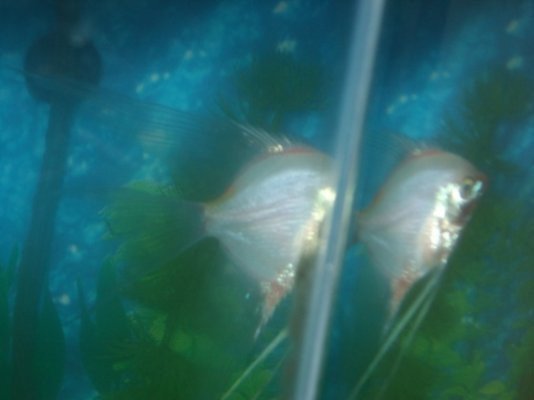I see. Well, perhaps I didn't "hear" things like you had wanted. I apologize for making assumptions. Still...
I was simply pointing out that I had just done a water change and the ph was back to normal
If/when you change water and experience a change in pH, one of at least two things is happening.
- You are changing too much water at one time and should be able to avoid this by doing smaller, but more frequent changes.
- You should take a look at the Kh of the water and find a more permanent way to provide it with the ability to maintain a constant/steady pH
As I mentioned, with only a few exceptions, pH changes are a bad thing for your fish and because you are seeing this after a water change, I am thinking that you could also be changing the water chemistry in other ways which cause stress on your fish. In fact, this is the reason why we acclimate our new fish...we are providing them some time to adapt to the differences between the store's water and our own; which they certainly can do but only to a point. Again, the reason this is important is because stressed fish are less able to protect themselves from illness/disease/parasites. Likewise...
and that my ammonia reading does go up a bit when I stir the gravel a lot during cleaning (ammonia reads at 0ppm today).
...in a cycled, well maintained tank (meaning, a cycled tank still requires our help), you should have no problems with ammonia at all. In fact, the beneficial bacteria which 'eat' ammonia and make nitrIte also 'eat' ammonium so this is why I believe you have some larger problems than you might think right now. Of course, the same thing applies, ammonia/ammonium cause stress which weakens their immune system.
If I haven't already put my foot too far in my mouth, I suggest taking a little extra time during your future water changes to not only stir some of your gravel up each time, but also do your best to remove as much of the debris you kick up so that it is not in your tank anymore. As I'm sure you already know, kicking up this detritus without removing it is almost certainly the source of the subsequent ammonia readings. In fact, by removing this stuff and then doing your best to prevent it (e.g. don't over feed, don't over stock) in the future will not only help you protect your fish, but probably help you slow down algae growth.
As for the tank conditions, I'm still deciding whether I want to black out the tank, treat chemically, treat with algae eaters, or just move my angelfish to a larger tank
While I understand and empathize with your algae concerns, it is also important to know that water quality also plays a large part in this aspect of our hobby as well. In other words, I think that taking a step back and making sure you have the basics covered will help you solve a lot of your current issues, as well as prevent them in the future.
Sorry if my posts seem like I'm being dismissive, I don't mean to be and I appreciate the help. I'm just a little frustrated as I'm concerned about my fish...
I also apologize for not representing myself in the way I had hoped...I understand that I'm not really addressing your specific questions and that may bother some people, but I also think most everyone here would agree that solving a problem like the sick angelfish requires a lot more than going to a store. In fact, despite my less-friendly comments before (for which I apologize for again), my only motivation is to help you by pointing out what I already have, as well as mentioning that medications can and usually do come with other 'complications' that I feel are going to important to you because some of those complications are similar to problems which it sounds you already have.

